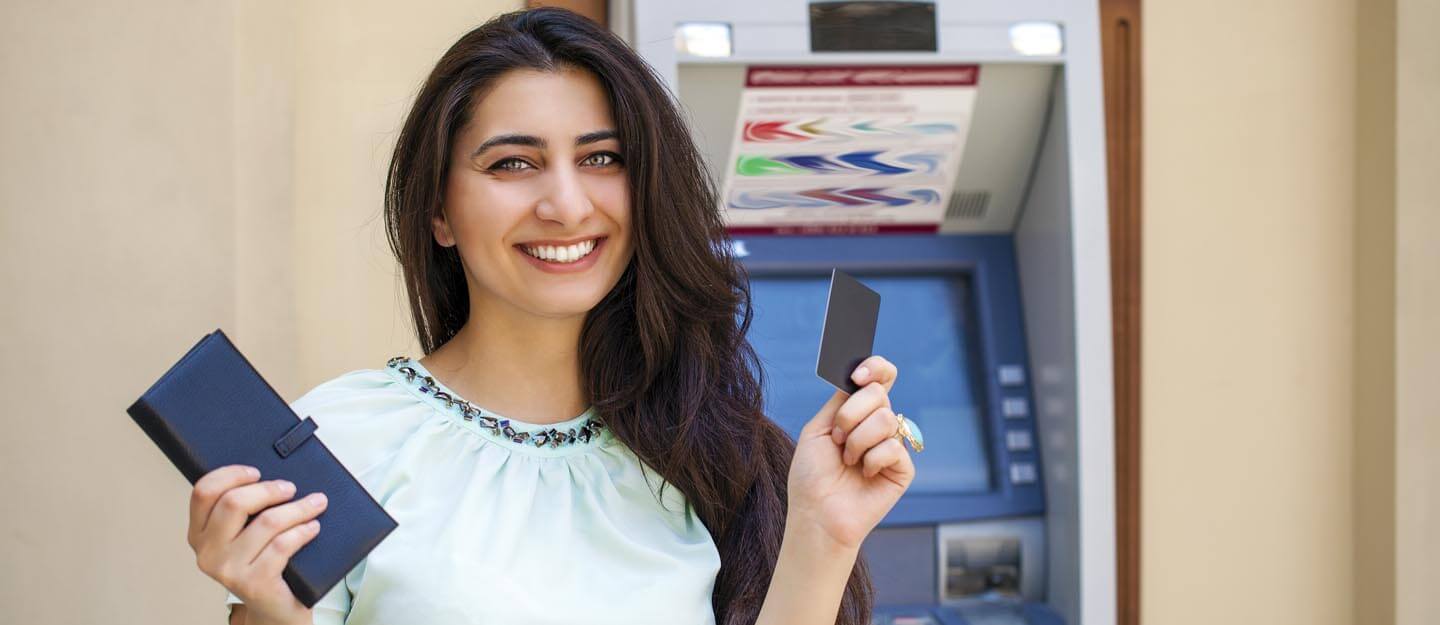

The United Arab Emirates (UAE) has earned a global reputation for its advanced financial services, exceptional customer care, and secure banking systems. These qualities make the UAE a magnet for individuals, businesses, and investors looking to open bank accounts in a safe, reliable, and tax-efficient environment. Whether you are a resident or a non-resident, opening a bank account in the UAE can open doors to a myriad of financial services and benefits that are ideal for personal wealth management, corporate operations, or facilitating a business setup in UAE.
However, navigating the process of opening a bank account in the UAE can be a complex task, particularly for non-residents. From rigorous documentation requirements to extended approval timelines, understanding the step-by-step procedure, the necessary documents, and the nuances of the UAE banking system is crucial for success. This comprehensive guide aims to provide in-depth insights into every aspect of opening a bank account in the UAE.

Page Content
Step-by-Step Procedure for Opening a Bank Account in the UAE
The process of opening a bank account in the UAE is detailed and methodical, designed to ensure transparency and security. Whether you are an individual or a legal entity, following these steps will guide you through the procedure efficiently.
-
Choosing the Right Bank and Submitting an Application
The first step is selecting the bank that aligns with your financial needs. The UAE boasts a range of local and international banks, each offering various types of accounts such as personal, business, savings, and offshore accounts. Some of the top banks in the UAE include Emirates NBD, Abu Dhabi Commercial Bank (ADCB), and Dubai Islamic Bank. Once you’ve chosen the bank, it is essential to contact them to clarify the specific documents required for your application.
After gathering the necessary documentation, you will need to schedule an appointment for a personal interview. Personal attendance is mandatory, as UAE banks typically require applicants to appear in person to verify their identity.
-
Verifying the Applicant’s Reliability (Know Your Client – KYC)
UAE banks employ a stringent verification process to ensure the authenticity of the documents provided. This verification is part of the “Know Your Client” (KYC) procedure, which serves to protect both the bank and the client by preventing money laundering, tax evasion, and other illicit activities. The bank may require additional clarifications during this phase, depending on the applicant’s profile and the complexity of their financial situation.
-
Application Approval and Account Opening
Once the KYC process is completed and the application is deemed satisfactory, the bank proceeds with approving the account. At this point, the client is informed of the approval and is provided with the account details. Depending on the bank, this can include receiving a debit card, checkbook, and access to online banking services.
-
Initial Deposit and Account Activation
After the account has been opened, the client must transfer funds into the account as an initial deposit. This amount may vary depending on the type of account and the bank’s policies. Most banks in the UAE have a minimum balance requirement for personal and business accounts. Some banks may charge penalties if the balance falls below the required minimum, so it’s essential to be aware of these conditions beforehand.
-
Final Review and Confirmation of Terms
After the deposit is made, the bank conducts a final review to ensure that all the requirements have been met. During this stage, a bank representative may call the client to confirm the terms and conditions, including any fees, charges, or minimum balance requirements. This step helps ensure transparency and that both parties are clear on the terms of the account.
-
Language Considerations
While many banks in the UAE operate in English and Arabic, the official languages, applicants who are not fluent in conversational English may need to hire a translator to assist them during the interview and paperwork processes. It’s essential to ensure that all documents are fully understood before signing.

Timeline for Opening a Bank Account
The timeframe for opening a bank account in the UAE can vary, but the process usually takes between 2 weeks and 2 months. The timeline is influenced by several factors, including the bank’s internal procedures, the applicant’s residency status, and the thoroughness of the KYC checks. Non-residents and foreign entities may experience longer wait times due to additional documentation and risk assessments.
If the bank decides to conduct further checks, particularly for non-residents, the process can take longer. In some cases, banks may even request additional documents partway through the process, so it’s essential to be prepared for this possibility.
Required Documents for Opening a Bank Account in the UAE
The documents required for opening a bank account in the UAE differ depending on whether the applicant is a resident or non-resident. Here’s a detailed list of the necessary paperwork:
For Residents:
– Passport: A valid passport with an affixed UAE resident visa.
– UAE Resident ID: An electronic or physical copy of the UAE Resident Identity Card.
– Proof of Address: In some cases, banks may ask for proof of residence, such as a utility bill or tenancy contract.
– Salary Certificate: If you are employed, the bank may require a salary certificate from your employer.
For Non-Residents:
– Passport: A valid passport.
– Bank Statement: A bank statement from the applicant’s country of residence for the last 2-3 months.
– Utility Bills: Utility bills for the last 2-3 months, clearly indicating the applicant’s name and address.
– Written Justification: A formal statement explaining the reason for opening the account (for instance, for business, investments, or property management).
– Proof of Income: In some cases, banks may ask for additional documentation proving the source of income or the origin of funds intended to be deposited in the account.
Banks may request additional documents depending on their policies and the applicant’s circumstances, so it’s always a good idea to consult with the bank before applying.
Challenges for Non-Residents
Non-residents face a higher level of scrutiny when applying for bank accounts in the UAE, as these accounts carry a higher risk for banks. As a result, non-resident applicants are more likely to be rejected without explanation. The UAE banking system places significant emphasis on transparency, particularly for foreigners, as part of its commitment to international anti-money laundering standards. Applicants must be aware that rejection is a possibility and should be prepared to provide extensive documentation to mitigate this risk.

The Role of Know Your Client (KYC) in the UAE Banking System
The KYC procedure is a crucial component of the UAE banking system. It ensures that banks have all the relevant information about a client before they can open an account. This includes verifying the client’s identity, their financial history, and the legitimacy of the funds they intend to deposit. The KYC process aims to protect the financial system from being exploited for illicit activities like money laundering and terrorism financing.
Banks in the UAE are particularly vigilant when it comes to non-resident and corporate accounts. They may request additional documents and clarifications even after the initial submission, extending the approval process. Although KYC can seem rigorous, it’s designed to enhance the security and transparency of the banking system, benefiting both the client and the financial institution.
Additional Considerations and Common Pitfalls
Opening a bank account in the UAE involves several additional considerations that applicants must be aware of to avoid complications. These include:
– Document Precision: Ensuring all required documents are current and accurate is critical. Even minor inconsistencies can delay the process or result in rejection.
– Bank Operating Hours: Many banks in the UAE close during the afternoon, so it’s advisable to schedule appointments in the morning to avoid missed opportunities.
– Service Fees: Although many banks in the UAE offer free account maintenance, some charge monthly fees (typically $10-20) if the account balance falls below a certain threshold. It’s essential to confirm these details with your bank beforehand.
Benefits of Opening a Bank Account in the UAE
Despite the complexities of the application process, the advantages of having a bank account in the UAE are numerous. The UAE’s financial sector is one of the most advanced in the world, providing account holders with access to state-of-the-art services, international markets, and attractive financial incentives.
-
Financial Stability and Security
The UAE has a highly regulated banking sector, offering unparalleled financial stability. The country’s banks are subject to stringent oversight by the UAE Central Bank, ensuring that they adhere to international standards.
-
Tax Efficiency
One of the most appealing aspects of opening a bank account in the UAE is the country’s favorable tax environment. The UAE does not impose personal income taxes, capital gains taxes, or corporate taxes (except in specific sectors like oil and gas). This makes the UAE an attractive location for high-net-worth individuals and businesses.
-
Technological Innovation
The UAE banking sector is at the forefront of technological advancement, offering cutting-edge digital solutions like mobile banking apps, online account management, and ATM services. These innovations make it easy for account holders to manage their finances remotely, whether they are in the UAE or abroad.
-
Data Protection and Privacy
Privacy and data security are of paramount importance in the UAE. Strict regulations ensure that customer information remains confidential and protected from unauthorized access.
-
Access to Global Markets
The UAE is strategically located as a gateway between East and West, making it an ideal hub for international business. Account holders in the UAE benefit from the country’s close proximity to key global markets, offering unparalleled opportunities for international trade and investment.
-
Diverse Financial Services
UAE banks provide a wide range of financial services, from personal banking and wealth management to corporate banking and investment management. Whether you are looking for a simple savings account or a full suite of corporate services, UAE banks offer comprehensive solutions.
How to Increase Your Chances of Success
To enhance your chances of successfully opening a bank account in the UAE, consider using the services of a legal consultancy or financial advisor. These professionals are well-versed in the local banking requirements and can assist with documentation, liaise with banks on your behalf, and streamline the entire process. This is particularly beneficial for non-residents and corporate clients, who may face additional hurdles during the application process.
Conclusion
Opening a bank account in the UAE offers significant benefits for both individuals and businesses, from financial stability and tax advantages to access to modern banking services and international markets. However, the process can be complex, especially for non-residents, requiring careful preparation, detailed documentation, and patience. By following the step-by-step procedures outlined in this guide and understanding the nuances of the UAE banking system, applicants can increase their chances of success and take full advantage of the opportunities the UAE offers.

Written by Jocelin Edwards
Recent Posts
- How Dubai Government Centers Can Cut Citizen Wait Times With Smart Queuing
- Extraordinary Influence Extracurricular Activities on Success Educational Process: Art, Sport, Volunteering
- Comprehensive Guide to Opening a Bank Account in the UAE
- Seasonal Sailing: Best Times of the Year to Charter a Yacht in Dubai
- Healthcare Tips for a Healthy Vagina
